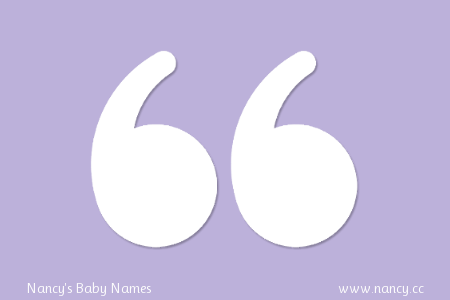From an article about famous people reclaiming their names in The Guardian:
Earlier this year, the BBC presenter formerly known as Ben Bland changed his surname to Boulos to celebrate his maternal Sudanese-Egyptian heritage.
[…]
The Bland name had masked important aspects of his identity that he had downplayed as a child, not wanting to be seen as in any way “different”, including his Coptic faith, Boulos said. “Every name tells a story – and I want mine to give a more complete picture of who I am.”
Boulos’s grandparents, who came to Britain in the 1920s, had chosen the surname Bland because they feared using the Jewish-Germanic family name “Blumenthal”. “They decided on the blandest name possible — literally — to ensure their survival,” he wrote.
From the book I Speak of the City: Mexico City at the Turn of the Twentieth Century (2015) by Mauricio Tenorio-Trillo:
Babies were baptized with new and strange names, particularly in the 1920s, names taken from the titles of various socialist experiments (for instance, in Tabasco with Garrido Canaval, who established socialist baptisms), and as a result of the emergence of the radio and the indigenist turn of the city’s language. Masiosare became a boy’s name (derived from a stanza of the national anthem: “Mas si osare un extraño enemigo…”), but also Alcazelser (after the popularity of Alka-Seltzer), Xochitl, Tenoch, Cuauhtémoc, Tonatihu (the biblically named Lázaro Cárdenas named his son Cuauhtémoc).
From the book Cecil B. DeMille’s Hollywood (2004) by Robert S. Birchard:
DeMille interviewed Gloria Stuart for the part of the high school girl [in This Day and Age], Gay Merrick, and said she was “extremely enthusiastic,” and he also considered Paramount contract player Grace Bradley, but ultimately he selected a former model who called herself Mari Colman. In April 1933 Colman won a Paramount screen test in a New York beauty competition, and DeMille was apparently delighted by the innocent image she projected.
In a comic sequence in David O. Selznick’s 1937 production of A Star Is Born, the studio’s latest discovery, Esther Blodgett, is given a new name more in keeping with her status as a movie starlet. As This Day and Age was getting ready to roll, Mari Colman was subjected to the same treatment as DeMille and Paramount tested long lists of potential screen names. Among the suggestions were Betty Barnes, Doris Bruce, Alice Harper, Grace Gardner, Chloris Deane, and Marie Blaire. Colman herself suggested Pamela Drake or Erin Drake. On May 15, Jack Cooper wrote DeMille that he had tried several names on seventeen people. Eleven voted for the name Doris Manning; the other six held out for Doris Drake. Somehow, the name ultimately bestowed upon her was Judith Allen. DeMille and Paramount had high hopes for Allen, and she was even seen around town in the company of Gary Cooper, one of the studio’s biggest stars.
From an academic paper by Denis Regnier called “Naming and name changing in postcolonial Madagascar” (2016):
[T]he spread of the Christian faith in the nineteenth century resulted in people increasingly giving names from the Bible to their children. These biblical names were often modified to follow the phonological and morphological rules of the Malagasy language (e.g., John becomes Jaonina or Jaona), and often the honorific particle Ra-, the word andriana (lord), or both were added to them (e.g., Rajaonina and Randrianarijaona)
And let’s end with a related quote about Madagascar’s very long names:
Names were reduced in length when French colonization began in 1896 — the shortest names today include Rakotoarisoa, Rakotonirina, Andrianjafy or Andrianirina, and tend to have around 12 characters minimum.
From a DMNES blog post announcing the publication of “Names Shakespeare Didn’t Invent“:
In this article, we revisit three names which are often listed as coinages of Shakespeare’s and show that this received wisdom, though oft-repeated, is in fact incorrect. The three names are Imogen, the heroine of Cymbeline; and Olivia and Viola, the heroines of Twelfth Night. All three of these names pre-date Shakespeare’s use. Further, we show in two of the three cases that it is plausible that Shakespeare was familiar with this earlier usage.
For more quotes about names, check out the name quotes category.

